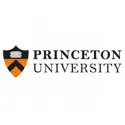Princeton University is a vibrant community of scholarship and learning that stands in the nation's service and the service of humanity. Chartered in 1746, Princeton is the fourth-oldest college in the United States. Princeton is an independent, coeducational, nondenominational institution that provides undergraduate and graduate instruction in the arts and humanities, social sciences, natural sciences, and engineering.
Visit the university website.
